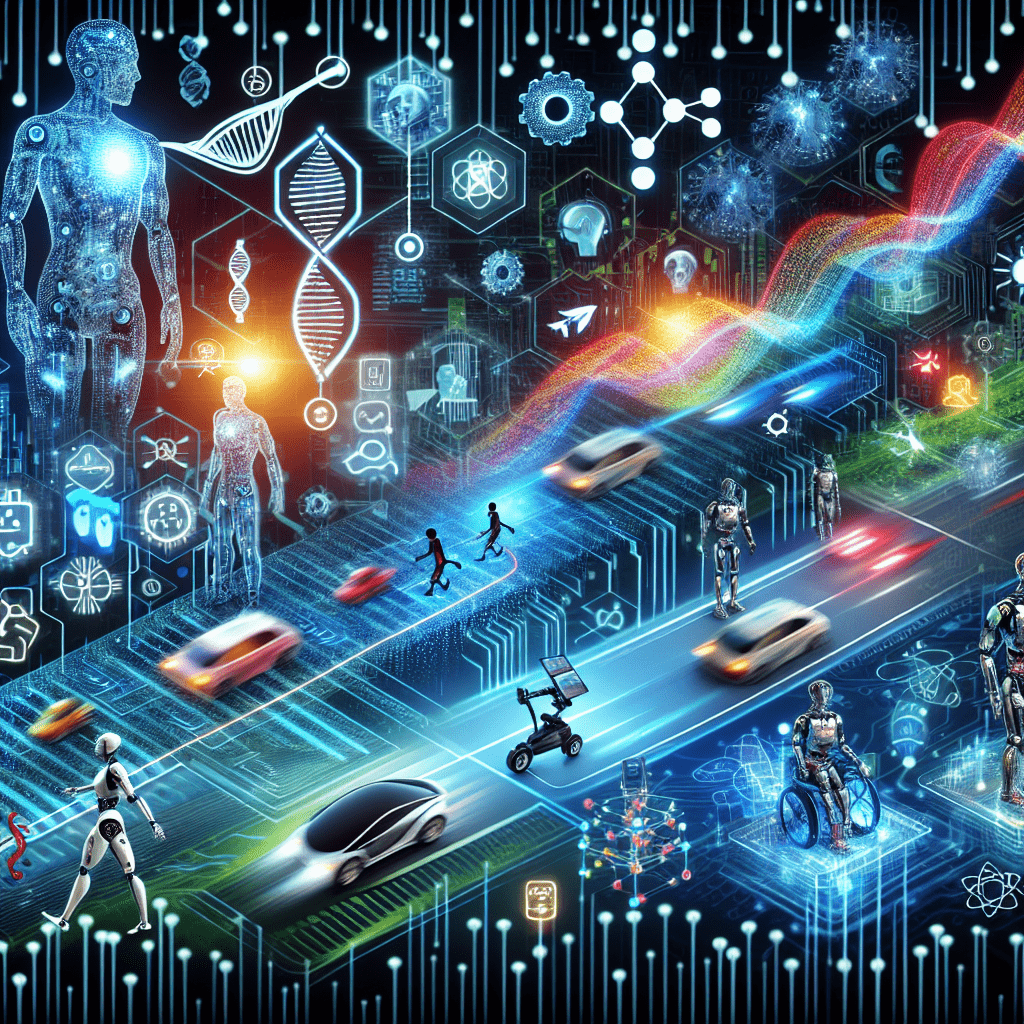As technology continues to advance rapidly, artificial intelligence (AI) is playing an increasingly significant role in shaping the future of various industries. From healthcare and finance to marketing and transportation, AI is revolutionizing the way businesses operate and how people interact with technology.
In this article, we will explore some of the key trends shaping the future of AI and the impact it will have on society in the coming years.
1. Continued Growth in AI Adoption
One of the most significant trends to watch in the future of AI is the continued growth in adoption across various industries. With advancements in machine learning, deep learning, and natural language processing, AI capabilities continue to expand, making it more accessible and valuable for businesses.
Businesses are increasingly leveraging AI to improve decision-making, automate repetitive tasks, personalize customer experiences, and drive innovation. As AI technologies become more sophisticated and easier to implement, we can expect to see a surge in AI adoption across industries.
2. Ethical and Responsible AI Development
As AI technologies become more pervasive, there is a growing focus on ethical and responsible AI development. With concerns about bias, privacy, and the potential misuse of AI, organizations are prioritizing ethical considerations in their AI strategies.
Regulators are also taking steps to ensure that AI technologies are developed and deployed responsibly. The European Union, for example, has introduced regulations such as the General Data Protection Regulation (GDPR) to protect individuals’ data privacy rights in the age of AI.
3. Advancements in AI Hardware
Another trend to watch in the future of AI is the advancements in AI hardware. As AI workloads become more complex and demanding, the need for specialized hardware accelerators, such as graphics processing units (GPUs) and tensor processing units (TPUs), is increasing.
AI hardware innovations are driving improvements in performance, efficiency, and scalability, enabling AI Applications to run faster and more efficiently. The development of more powerful and energy-efficient AI hardware will continue to drive the growth and adoption of AI technologies.
4. Continued Evolution of AI Applications
AI Applications are constantly evolving and diversifying, with new use cases emerging across industries. From autonomous vehicles and virtual assistants to predictive analytics and fraud detection, AI technologies are being applied to solve a wide range of challenges.
In the future, we can expect AI Applications to become even more sophisticated and specialized, delivering more accurate predictions, personalized recommendations, and autonomous decision-making. As AI technologies continue to advance, the possibilities for innovation and disruption are virtually limitless.
Conclusion
The future of artificial intelligence is incredibly bright, with countless opportunities for innovation and growth. As AI technologies continue to advance and mature, we can expect to see a surge in AI adoption across industries, driven by advancements in AI hardware, ethical considerations, and the evolution of AI Applications.
It is essential for businesses and organizations to stay informed about the latest trends in AI and to continuously evaluate how AI can be leveraged to drive value and competitive advantage. By embracing AI and staying at the forefront of AI trends, businesses can position themselves for success in the age of artificial intelligence.
FAQs
What industries are adopting AI technologies?
AI technologies are being adopted across a wide range of industries, including healthcare, finance, marketing, transportation, retail, and more. These industries are leveraging AI to improve decision-making, automate tasks, personalize customer experiences, and drive innovation.
What are some ethical considerations in AI development?
Some ethical considerations in AI development include concerns about bias, privacy, transparency, accountability, and the potential misuse of AI technologies. Organizations are increasingly prioritizing ethical considerations in their AI strategies to ensure that AI technologies are developed and deployed responsibly.
What role does AI hardware play in the future of AI?
AI hardware, such as GPUs and TPUs, plays a critical role in the future of AI by enabling faster, more efficient, and scalable AI Applications. As AI workloads become more complex and demanding, advancements in AI hardware are essential to drive the growth and adoption of AI technologies.
Quotes
“Artificial intelligence is the future, and the future is now.” – Unknown
Write a story about a group of friends who discover a hidden treasure map that leads them on a thrilling adventure.


